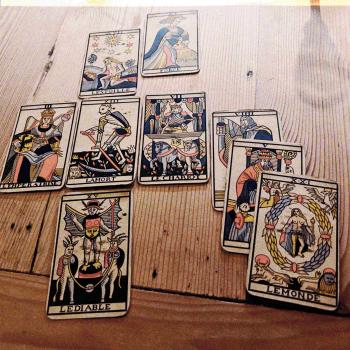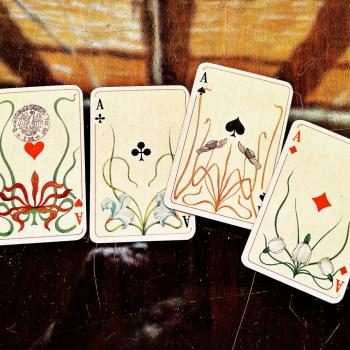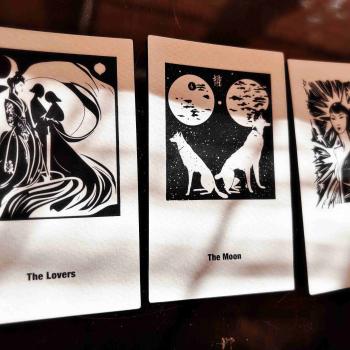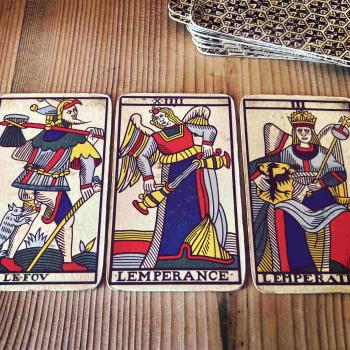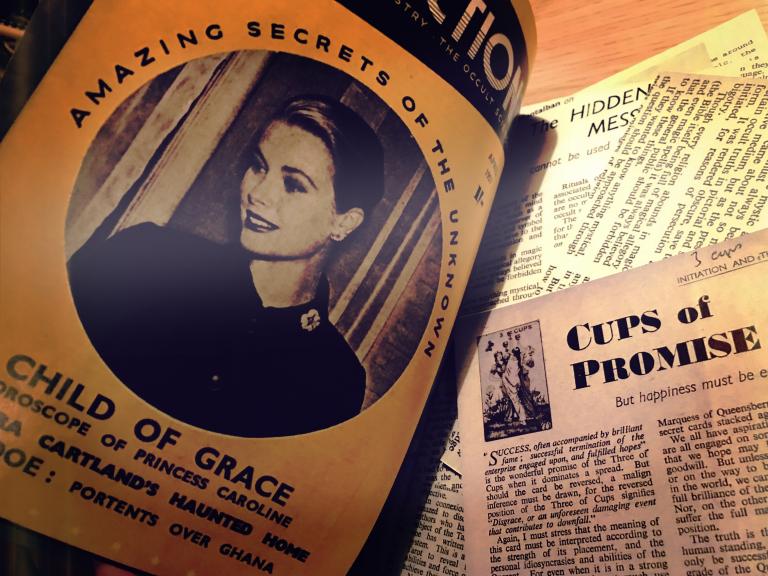
Positional readings operate with plot. Readings in line operate with sequentiality. Plot is a storytelling device. Sequentiality operates with referentiality, the starting point being the question.
Now, what tarot readers are not so conscious about is the fact that although many think that they answer a question in a reading session, in reality many participate in creating stories.
It’s often the case that we read for the story, not the question.
Now, stories are great, and they have contributed to catapulting the tarot to the heights of popularity. Let’s face it, knowing who your enemy is and who your strongest ally is can make a pretty good story. Knowing also how you can act towards friend or foe can also make a pretty good story.
The best stories operate with polarity and a moral stick that’s often standardized by some patriarch. There’s good and bad in the world, and it is excellent when we can punish the bad. The bad is essentially passive, dark, shadowy, woman-like, and so on. A story is told by permuting with these variables, and voilà, you’re in for how religions or Hollywood films are made, as all people need is to buy the bullshit.
In reality, however, stories are just stories, not reality. Reality is simpler than a story that requires all sorts of styles and conceits, as reality is all about the void, or what others have identified with the impermanence of all things. You recognize that, you’re beyond the story level. Whoa. Let that sink in, if it flies right over your head.
In contrast to reality, stories are often constructed with an embedded promise for permanence. If you’re a Christian, there’s the promise of enjoying everlasting life in heaven. If you say your vows properly in church, there’s the promise of everlasting happiness. If you stake your life on it to meet the Devil at the crossroads, there’s the promise of unending knowledge. If only you could get thinner, there’s the promise of everlasting beauty and success. All these promises are predicated on storytelling that operates with the manipulation of belief.
You can see this in action if you follow the way the pendulum swings. We’re entering a new year. Watch what’s happening in terms of discourse. For years now, the turn of the year was marked by creating stories around who you can become by virtue of your strong resolutions. When the promise for an everlasting ‘better you’ didn’t work out, with people getting suspicious of all the self-empowering promises, a new story is in town. ‘Don’t make resolutions. Look at the past and review your year.’ In other words, create another story that focusses on the past rather than the future, and you’ll be set: ‘You ain’t gonna make that mistake again…’ whatever that was.
The Zen woman in me wants to know: Whatever happened to the present, or, indeed, the middle way, the way between wasting our time with the past or speculating about the future? Shouldn’t entering a new year be about the same, feel that you breathe – you’re not dead yet – enjoy your food, smell some flowers, kiss your dog – if you have any of it – and do your best. And even if you don’t have access to what I’m talking about here, or think that you can’t do your best, you can still enjoy the fact that you know exactly what kind of tricks your mind is playing on you. If you kept it like this, I might even warn you that there’s every chance you’ll get addicted to observing what your mind decides is either the good or the bad story.
Heighten your present awareness
Here’s what I suggest if you want to read some cards in your new year with some heightened awareness. Drop the economy related to how the pendulum swings, and start reading your cards for an answer, not a story.
If you must review the past, then think about the times you’ve read the cards for other people and you had the distinct impression that although they had a question, what they wanted was not an answer but a story. If you gave in, and started spinning wilder and wilder stories, reflect on how it felt to compromise your answer at the expense of the excitement (for better or worse).
We’re forever entertained by stories, and most cultural theorists, behaviorists, and marketing gurus would tell you that without a story, there’d be no self, no happiness.
Again, I’m thinking of what the Zen masters of old would say about that… They’d laugh so hard at the idea of how much people insist on complicating their lives because they buy the story of the power of the story through all sorts of identifications that are simply not very helpful or useful.
Yes, a story is powerful. Look at Facebook and the way they’ve started pushing for stories in your newsfeeds, but a story is not reality, no matter how powerful it is. Next time you feel empowered by a story in the social media or any other media, including Zen philosophy, before you get too excited, you might want to ask whom the story you’re excited about benefits. I would strongly doubt that it’s you.
I myself like stories. So much so that I actually made not one but several careers out of stories. But here’s the story of my secret: I never believe in any of them. Ta da. I already feel energizing for my new year. Can you feel the power of this enchantment? I hope you do.
Let this question for your cards inspire you:
How can I read my cards for an answer, not a story? What’s my reality cue?
Pay attention to what the cards say, and how they distinguish between an answer – which for many would also qualify as a story – and a story.
There’s no example of a card reading today, as I want you to arrive at your own conclusion.
But I’ll leave you with some images from a Tarot project called Letters to the Past – now that we’re supposed to go with the story of reviewing our past year. Lyn Howarth-Olds edited and complied some interesting mail art in a book in 2011, by asking influential Tarotists to send her an imaginary letter to a figure from the past who influenced them. Rachel Pollack wrote to James Joyce using a fountain pen from the period. How cool is that? Many others have fascinating things to say. If you have an occasion to stumble over this limited edition rarity (12 copies), do so. This work is quite something.
Here’s the art. Make some art yourselves, and live beautifully. That’s my New Year’s message to all of you. Thank you for reading my words. Keep going.
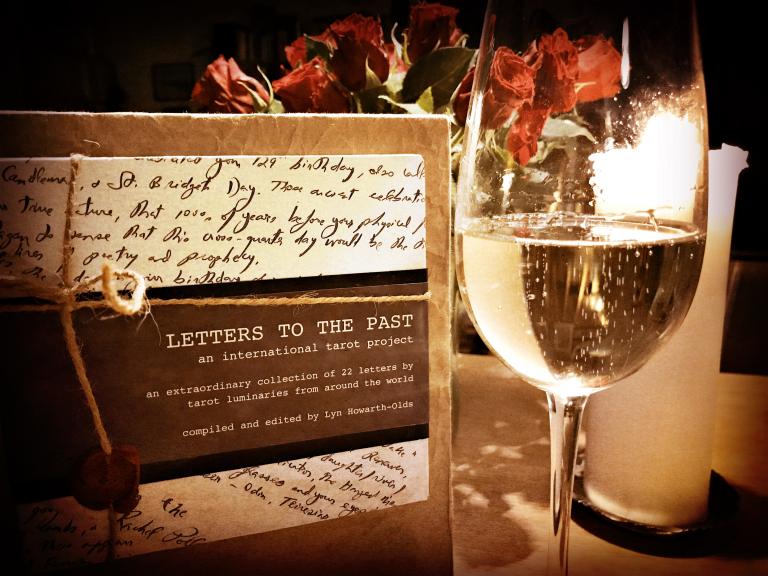
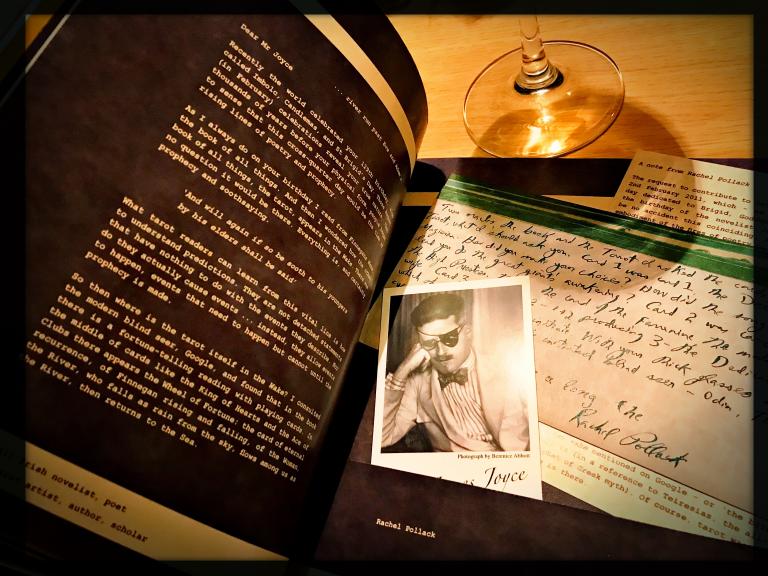
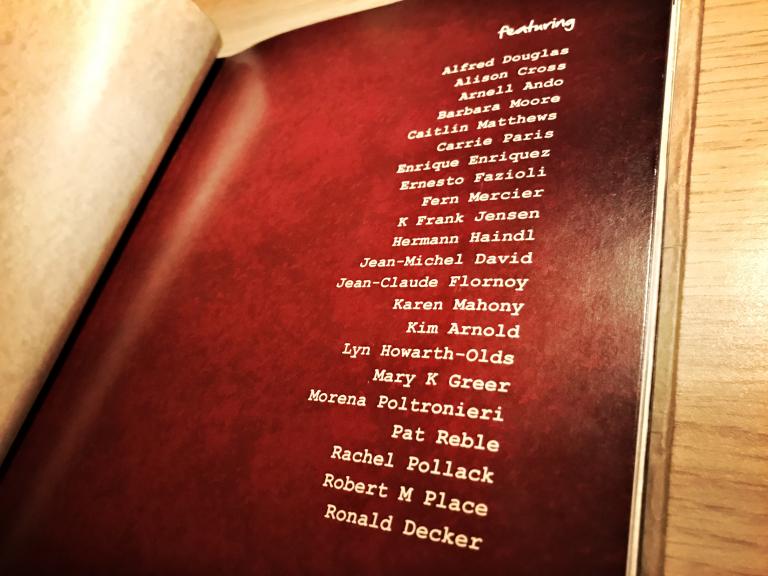
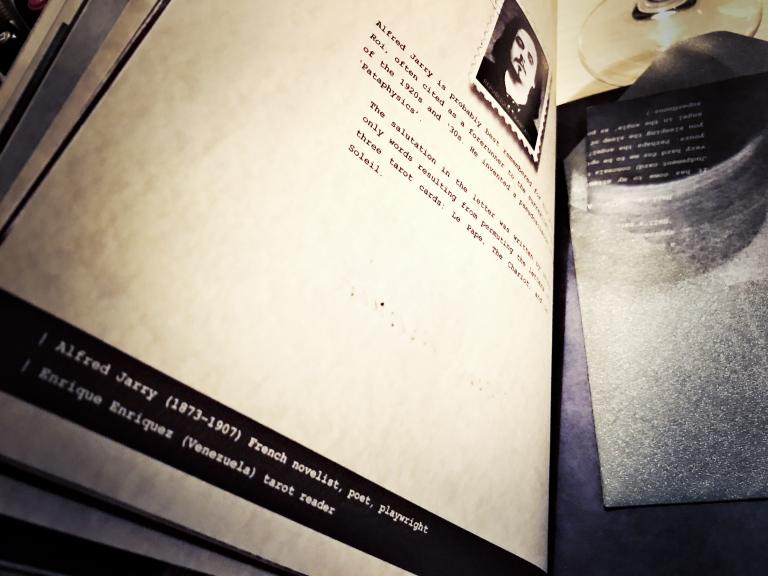
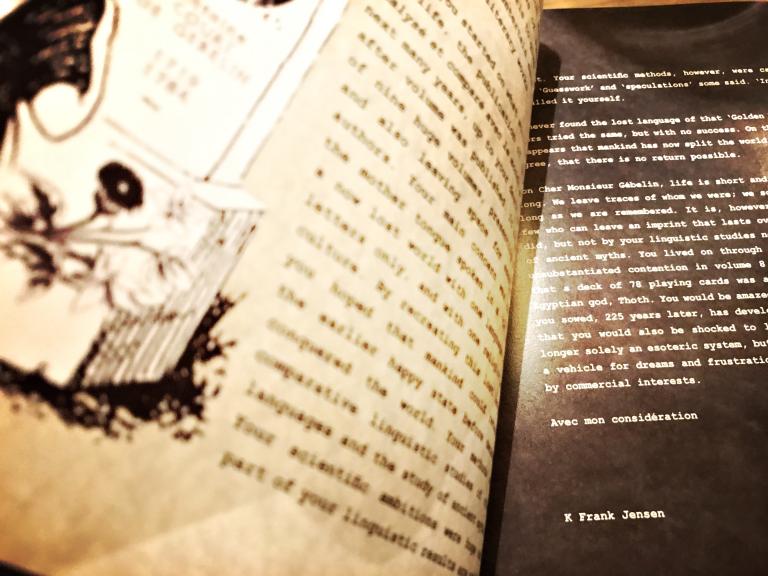
♠
Stay in the loop for cartomantic courses. Next in line is the smashing biannual Tarot Prompts series, this time under the topic: ‘Do your Best.’ Registration opens around January 10.




